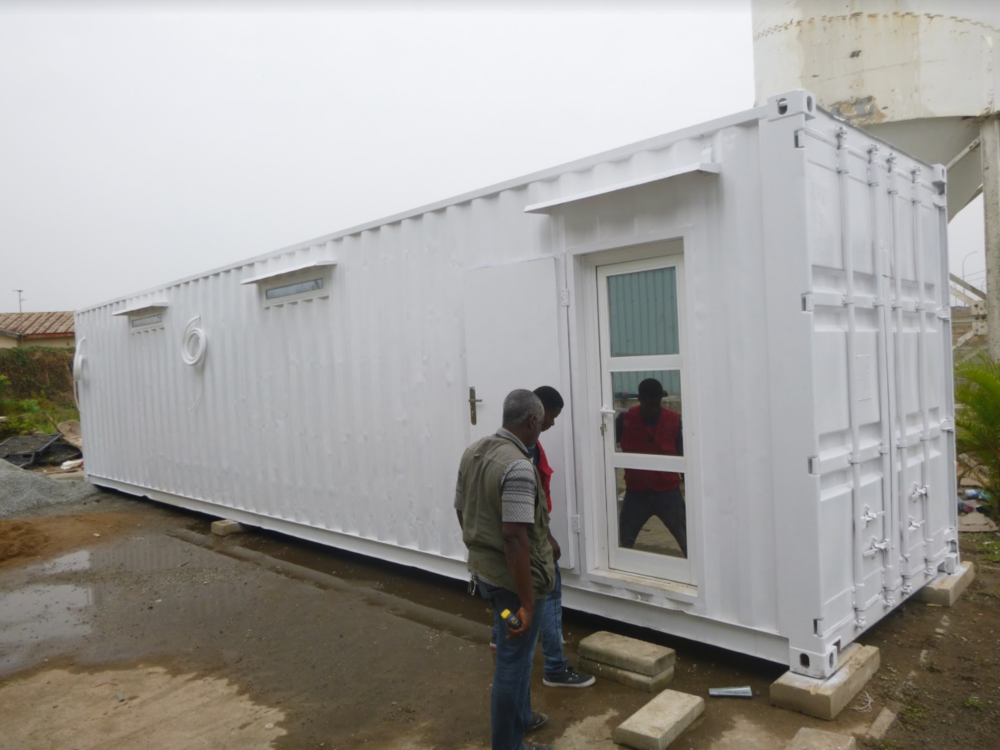By Daniel Ojabo
Between December 13, 2016 and April 30, 2017, 11,594 suspected cases of Meningitis and 955 deaths have been reported across Nigeria. The current outbreak of Meningitis in the country is bigger in magnitude than previous outbreaks and has affected 184 Local Government Areas (LGAs) across 13 states and the Federal Capital Territory (FCT).
var divElement = document.getElementById('viz1496313855580'); var vizElement = divElement.getElementsByTagName('object')[0]; if ( divElement.offsetWidth > 800 ) { vizElement.style.width='100%';vizElement.style.height=(divElement.offsetWidth*0.75)+'px';} else if ( divElement.offsetWidth > 500 ) { vizElement.style.width='100%';vizElement.style.height=(divElement.offsetWidth*0.75)+'px';} else { vizElement.style.width='100%';vizElement.style.height=(divElement.offsetWidth*1.77)+'px';} var scriptElement = document.createElement('script'); scriptElement.src = 'https://public.tableau.com/javascripts/api/viz_v1.js'; vizElement.parentNode.insertBefore(scriptElement, vizElement);
Meningitis is an inflammation of the membranes covering the brain and spinal cord. Meningococcal meningitis is a bacterial form of meningitis, a severe and deadly infection of the membranes that cover the brain and spinal cord (1). Six states, namely Zamfara, Sokoto, Katsina, Niger, and Kebbi have crossed the epidemic threshold. These states are affected by Meningitis serotype C strain (NmC) as the predominant serogroup and Yobe with Meningitis serotype A strain (NmA) as the predominant serogroup (2). NmC has accounted for 83% of laboratory-confirmed cases and the population is severely under-vaccinated against Nmc in these affected areas (3).
Due to the lack of robust diagnostic laboratories in this region, suspected cases of meningitis were being tested using the Pastorex test kit; a rapid test kit used to determine whether a cerebrospinal fluid (CSF) sample is positive for Meningitis or not. Further tests to determine the type of causative organism (Microbial Culture) and its abundance in test samples usually require samples to be transported to the Federal Capital Territory, Abuja and Lagos.
eHealth Africa (eHA) is partnering with the World Health Organization (WHO), the Nigeria Centre for Disease Control (NCDC), the National Primary Health Care Development Authority (NPHCDA), the University of Nebraska Medical Center (UNMC), UNICEF, and others to continuously support the Ministry of Health in the fight to contain the current widespread outbreak of Meningitis. As part of efforts to control the spread of Meningitis in northwest Nigeria, eHA designed and built a well-equipped laboratory in Sokoto state. Tests conducted in the laboratory involve gram staining, cytology, Pastorex Agglutination Test, and Microbial Culture. Over 345 samples have been registered and analyzed at the Sokoto lab during this current outbreak.

Housed in a 40-foot shipping container, the laboratory has room for a modular setup that allows for mobility to locations with an active outbreak, and thus diagnostic needs. This equipment allows not only the Pastorex test to be carried out on CSF samples collected in Sokoto and neighboring states but also culture and gram staining. For the initial weeks of operation, staff from IFAIN laboratory, Abuja, served as laboratory systems managers to support the operation of the Sokoto lab and to guide the Sokoto Medical Laboratory Scientists (MLS) through operations of the laboratory.
To strengthen surveillance and effective response to active public health emergencies, eHA also set up a toll-free hotline (08003432584) to receive reports of suspected cases. The hotline collects basic information about the cases and shares the information on the number of reported cases and the respective location with stakeholders on a daily basis. The hotline also receives calls from hospitals designated as sample collection and treatment sites for Meningitis. Eventually, this information will be collected using electronic data collection tools located at each of the sample collection centers, but in the meantime, the information on cases and sample collection will be collected through calls to the hotline. The hotline experience will be aligned with the Nigeria Centre for Disease Control (NCDC) efforts towards preventing outbreaks of this scale in the future.
Visit our website here to find out more about our work improving preparedness for potential public health emergencies and responding effectively to active public health emergencies.
References
-
World Health Organization (WHO). Media Center: Meningococcal Meningitis page. World Health Organization (WHO) website. http://www.who.int/mediacentre/factsheets/fs141/en/. Updated November 2016. Accessed April 26th, 2017.
-
The Nigeria Centre for Disease Control (NCDC). An Update of Meningitis Outbreak in Nigeria for Week 18. Nigeria Centre for Disease Control (NCDC) website. http://ncdc.gov.ng/diseases/sitreps/?cat=6&name=An%20Update%20of%20Meningitis%20Outbreak%20in%20Nigeria. Updated April 2017. Accessed April 26, 2017.
- Assessment Capabilities Project (ACAPS). Nigeria: Meningitis Briefing Note 11 April, 2017. Assessment Capabilities Project (ACAPS) website. https://www.acaps.org/sites/acaps/files/products/files/20170411_acaps_start_briefing_note_nigeria_meningitis.pdf. April 11, 2017. Accessed April 25, 2017.

